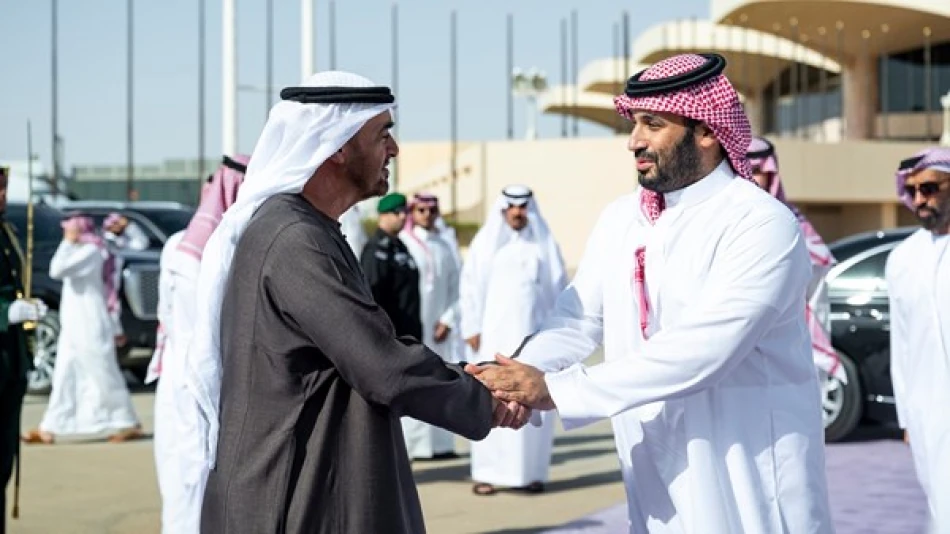
UAE President Departs Riyadh, Welcomed by Saudi Crown Prince
UAE-Saudi Arabia Strengthen Strategic Partnership as Leaders Conclude High-Level Talks
UAE President Sheikh Mohammed bin Zayed Al Nahyan concluded his visit to Saudi Arabia, with Crown Prince Mohammed bin Salman personally seeing him off at King Khalid International Airport in Riyadh. The diplomatic exchange underscores the deepening strategic partnership between the Gulf's two largest economies amid regional transformation efforts.
Diplomatic Protocol Signals Strengthened Ties
The high-level farewell ceremony at Riyadh's international airport reflects the importance both nations place on their bilateral relationship. Crown Prince Mohammed bin Salman's personal presence at the departure demonstrates the priority Saudi leadership assigns to UAE relations, following established diplomatic protocol for visits between heads of state.
Regional Economic Integration Accelerates
This meeting comes as both countries advance ambitious economic diversification programs—Saudi Arabia's Vision 2030 and the UAE's vision for becoming a global hub for innovation and trade. The timing suggests potential coordination on regional infrastructure projects, energy transitions, and financial market integration.
Strategic Implications for Gulf Cooperation
The UAE and Saudi Arabia have increasingly aligned their foreign policy positions and economic strategies over recent years. Both nations are pursuing similar paths in renewable energy investments, artificial intelligence development, and reducing dependence on oil revenues. Their cooperation has become a stabilizing force in a region facing multiple challenges.
Market and Investment Perspective
For investors and businesses operating in the Gulf region, closer UAE-Saudi coordination typically signals opportunities in cross-border projects and regulatory harmonization. The two countries control significant sovereign wealth funds—Saudi Arabia's Public Investment Fund and Abu Dhabi's various investment vehicles—whose coordination could reshape regional capital flows.
Both nations are competing to become the Middle East's primary financial and business hub, yet their leaders increasingly view collaboration as more beneficial than rivalry, particularly in attracting international investment and developing new economic sectors beyond hydrocarbons.
Most Viewed News

 Layla Al Mansoori
Layla Al Mansoori






